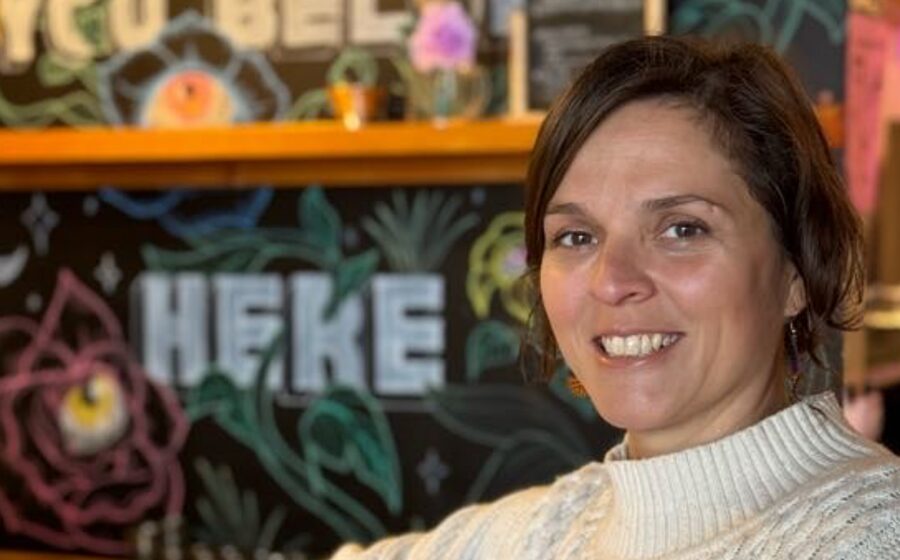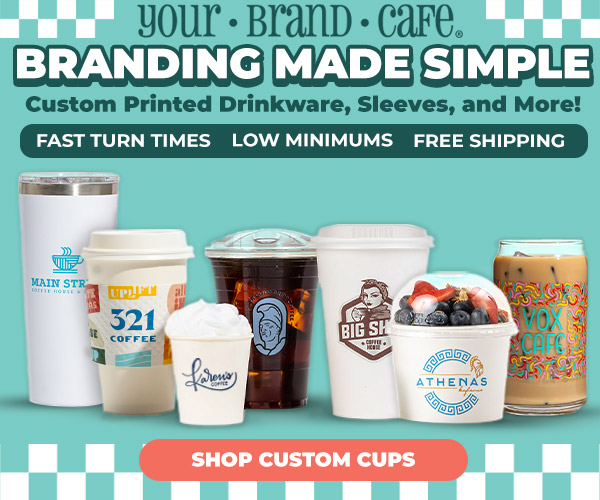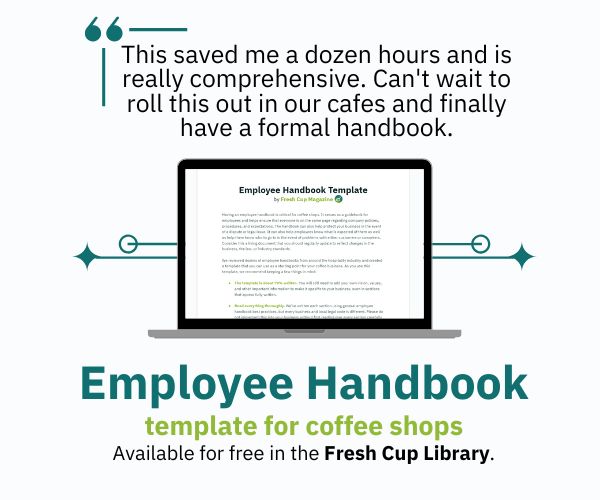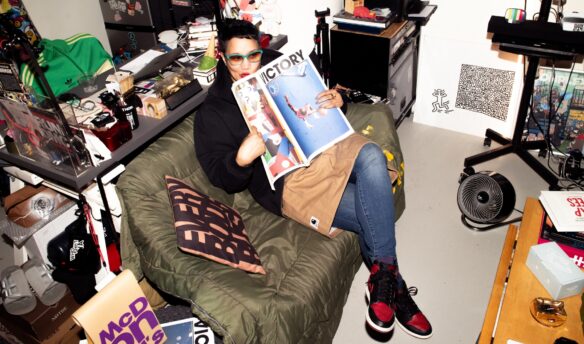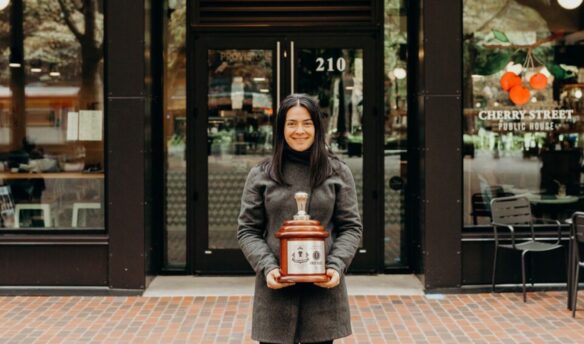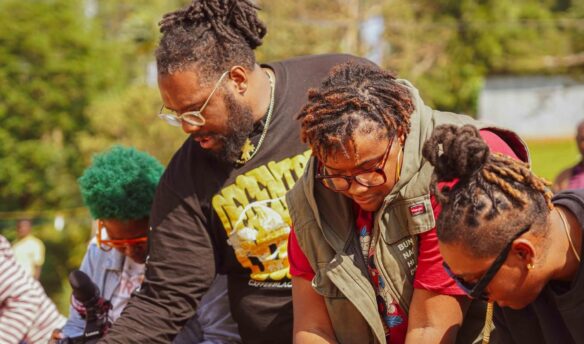After the 2016 US presidential election, cafe owner Randi Hensley decided she needed to do more with her coffee shop.
Epoch (pronounced e-pock), which opened its doors in 2006 in the North Loop neighborhood of Austin, Texas, had always been supportive of women’s rights, the LGBTQIA+ community, and other marginalized groups. But with the threat to marginalized groups growing in light of the Trump administration, Hensley realized it was time to be much louder—and make it clear within the shop where Epoch stood.
When you walk into Epoch, you’re greeted with signals of inclusivity and acceptance. A pride flag hangs in the window, and the store’s unofficial motto is “You Belong Here”—it’s written on a bandana that adorns the espresso machine and appears on the door as you enter.
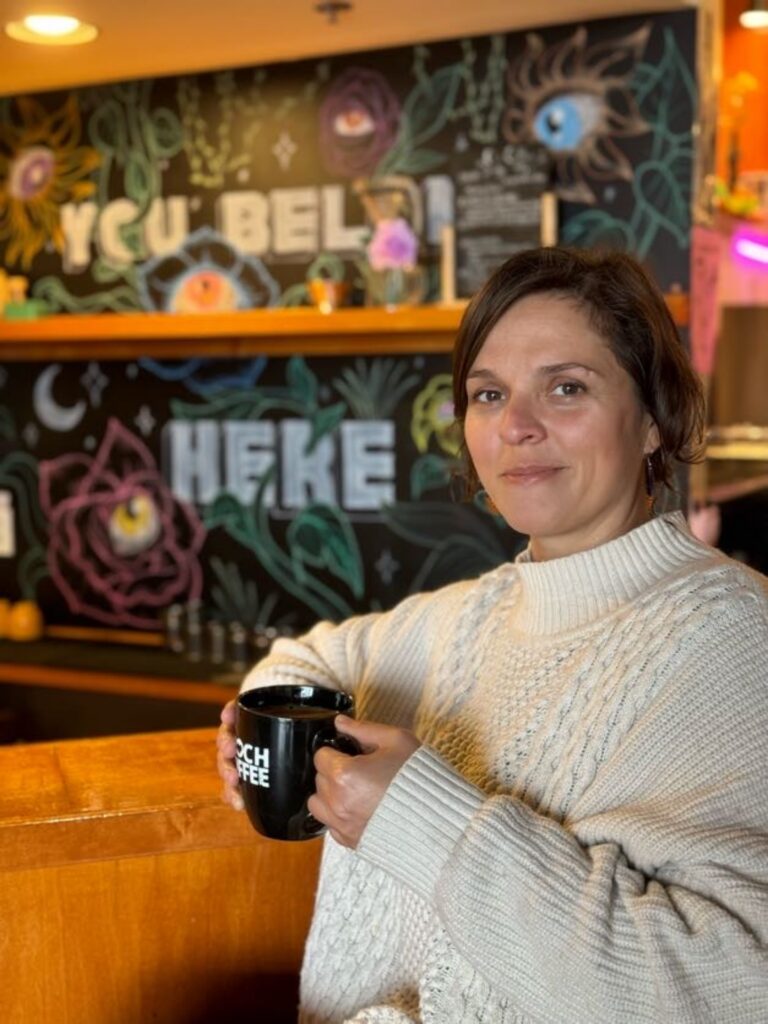
Today, Epoch roasts its coffee and has grown to three retail locations throughout Texas’s capital city. Hensley co-owns the cafe with Chris Clarkson, who is also the head roaster, Kevin Gary, and Joe Rodriguez, and together, they’ve worked to make it clear that Epoch is a safe place for all. The store frequently organizes fundraisers for the local community, and the cafe works to give staff time off during demonstrations such as the ones staged earlier this year to protest anti-LGBTQ+ bills passed by the legislature.
We sat and chatted with Hensley and Schyler Renee, the general manager of Epoch’s Far West neighborhood location, to learn more about Epoch’s values, what staff support looks like, and how they’ve created an enduring legacy of supporting marginalized communities—all while serving great coffee.
What is it like working at Epoch? How does the shop embody its values?
Renee: I would say over 50% of the employees here are queer and trans. Even if that wasn’t the case, the values I understand and have gathered from working here are all very community-based. Coffee shops were historically places where community members would gather and have conversations and exchange ideas. And while Epoch fiercely loves its employees, Epoch also fiercely loves this community, which is increasingly more and more queer as the days go by.
Epoch does a lot of fundraising for queer and trans organizations like Out Youth, a trans youth organization here in Austin. When legislation passed banning gender-affirming care for trans children, Epoch did a drink special with proceeds going to Out Youth.
And it doesn’t stop there: Epoch supports people like me who are very visibly trans. I’m very gender variant, and they not only welcomed me with open arms, but within 30 days, I was promoted to assistant manager. Within a year, I was promoted to general manager of their third location.
They value their employees—queer or not—but they also foster an environment where you can absolutely be yourself. It’s hard to vocalize how much Epoch has stepped up for the queer community because it’s just embedded in the fabric of everything they do.
What are some of the things that Epoch has done to be a safe space for the LGBTQIA+ community?
Renee: A lot of people say that they are supportive of queer and trans people, but in reality, they aren’t. There are a lot of companies that are like, “We care.” But Randi actually cares—she will go above and beyond to take care of you. She’s amazing. This is the first place I’ve worked where I haven’t been afraid to let my whole self shine through. And it shows in my customer service and how I connect with people and regulars.
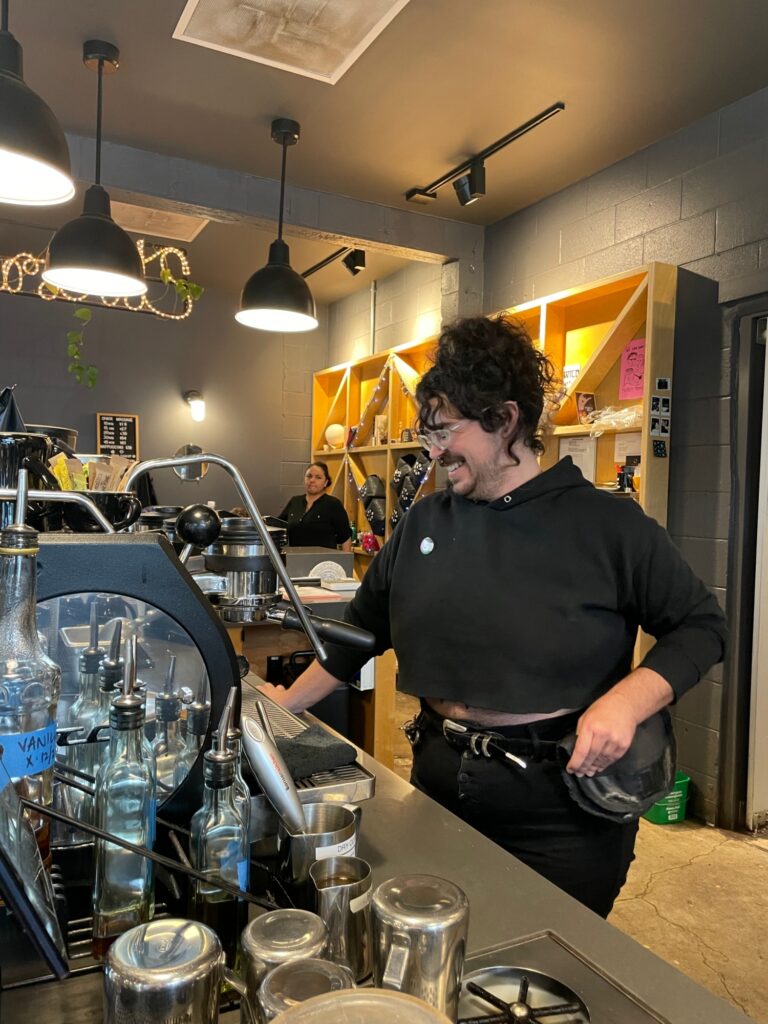
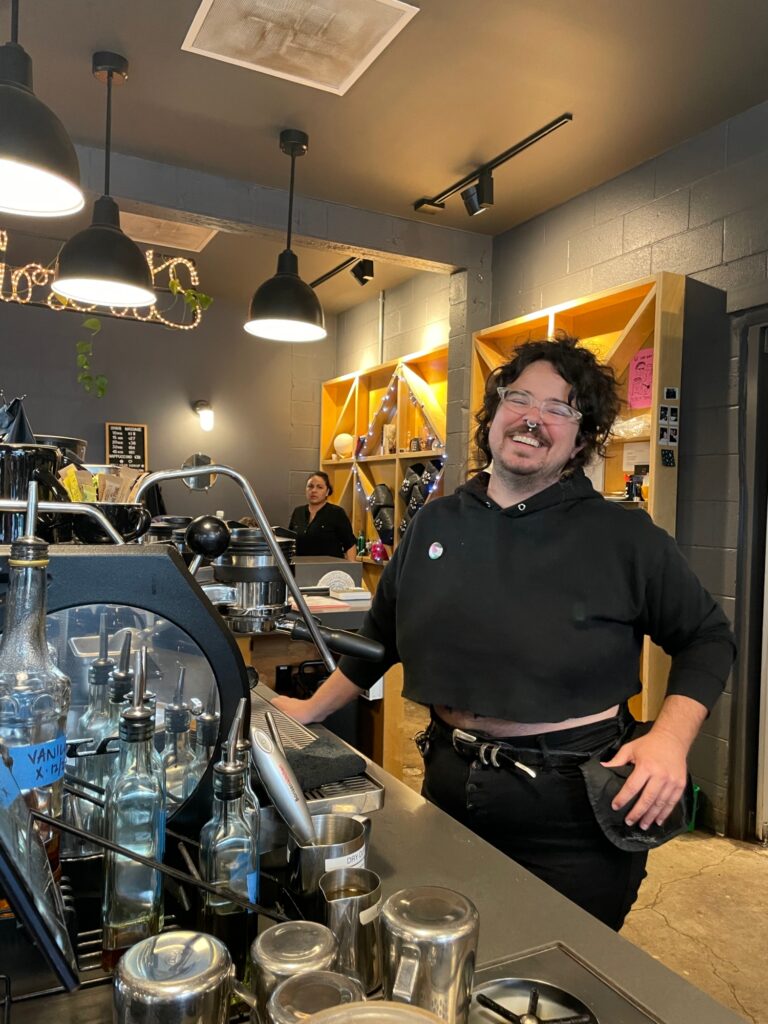
Hensley: I feel like we’ve always aimed to be a place that was supportive of the queer community and any community of people who want to express themselves fully. It’s been a core value at Epoch from the moment we opened.
I do think we’ve been more vocal about expressing our values because it’s more necessary than ever—especially since the recent attacks on trans people in the last legislative session. In case you didn’t know, we are unapologetically in favor of people being able to live their lives to their fullest, most authentic selves. And Epoch will always be a safe place for that.
The 2016 election was also a turning point for us. I remember working the shift after Trump was elected: people were really afraid and very hurt and needed a safe place. It was essential for me and Epoch to put ourselves forward as a safe place during this administration and beyond.
What advice do you have for other shops looking to build a safe space?
Renee: Take some classes and listen to your queer employees. Educate yourself on queer and trans rights and pay attention to what’s going on in the world. Take the time to understand that if you’re not part of that community, you might not understand everything, and you might have to ask questions—don’t be afraid to ask questions.
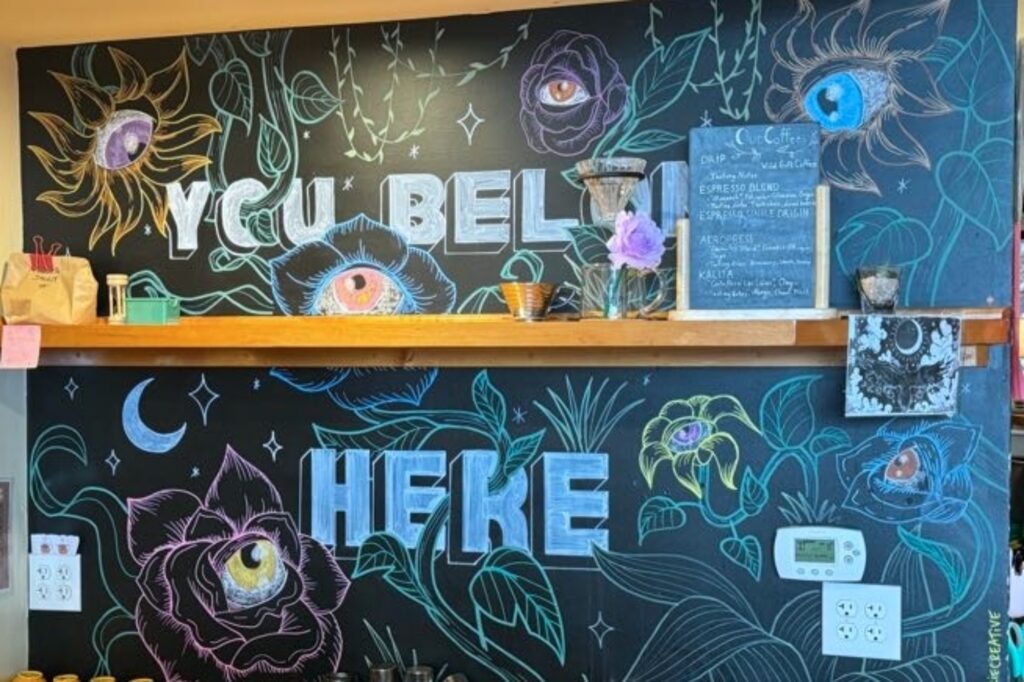
But also consider that if you’re seeking this information from your employees, that might be taxing, so try to seek out information on your own first. Respect your employee’s pronouns. You’re not going to know everything, and that’s okay. But there’s always room to grow.
Hensley: I’ve always had a lot of queer friends, and while I am 100% positive that they have taught me everything that I know about how to be a good ally, I don’t remember that happening purposefully. I think it’s just being around people who are queer, who are trans, who I love and care about. Epoch is a better coffee shop and community hub when people can come as they are.
But in terms of education, I think the main thing is to listen to people and listen to people talk about what they need. It’s sometimes easy for people to divorce themselves from what’s happening around them—take the current issues in the Texas legislature—but if you are a person who is being targeted, that’s not easy for you to do. It will affect your work; it’s going to affect how you feel at your job. For anybody in a position of leadership or a position of privilege, you should be thinking about how what’s happening in the world affects the people we care about and the people we’re working next to. That takes empathy.
Have you ever faced backlash for being vocal about your values?
Renee: If someone is transphobic or discriminatory against our staff, we’re more than welcome to kick them out, and the managers will be behind you. If I’m here, since I’m a manager, I’ll talk to that person or customer and let them know exactly why they’re no longer welcome.
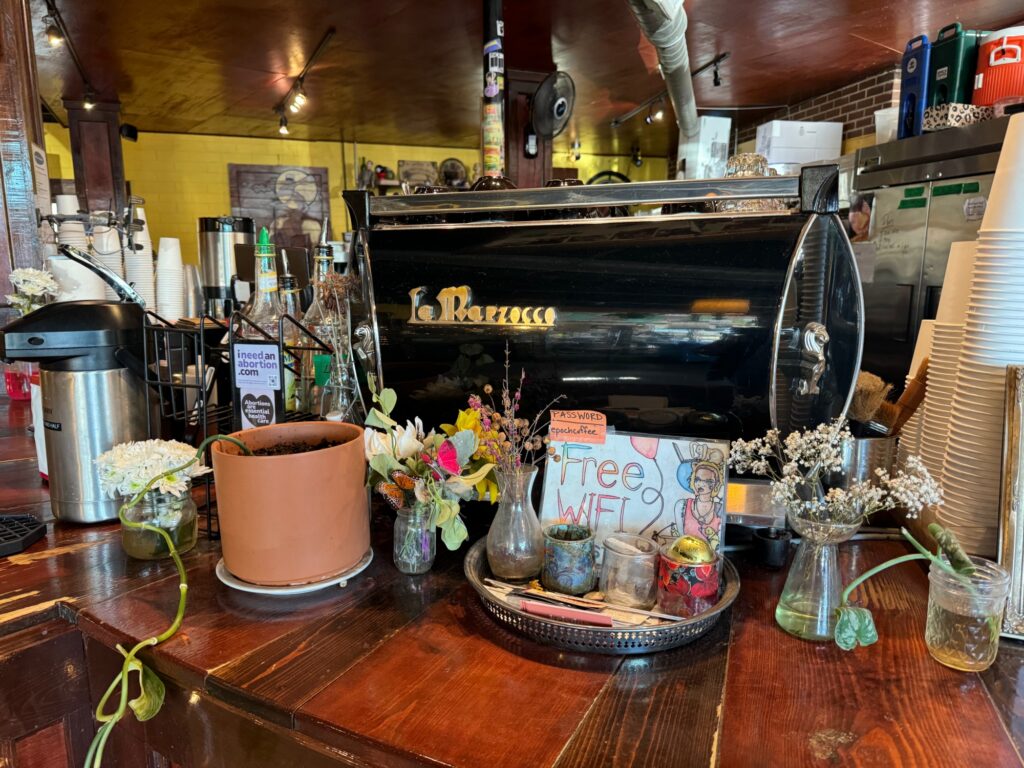
Luckily, because we’re very open about being queer and trans-friendly, people who don’t align with our values tend not to visit. But I wouldn’t say that’s deterred customers; it’s brought more people in because they know we’re a safe space.
Hensley: We will sometimes receive backlash for taking a political stance or supporting women’s rights—that’s happened to us in the past. We have conversations internally about safety, but for us, it’s been more important to be unapologetically who we are and to be on what I believe is the right side of history.
There’s this idea that barista jobs are always temporary, part-time gigs, and while that may be true for some, you have people on your staff who have been with you for years. How do you cultivate an environment where people are always learning and growing career-wise?
Hensley: We have a range of people on our staff, from career baristas who want to stay in coffee to people who want to move on after they finish school or figure out the next steps of their lives. We try to create an environment that supports both of those groups. We offer a variety of classes on topics like customer service classes, tea, latte art, and espresso theory. We hope these classes will help people be better at their jobs while they work for us, but we also hope they can use these skills if they’re trying to get a job in another city or coffee shop.
We also guarantee all employees make at least $21 an hour. We offer paid time off after a year, sick time that starts immediately, a 401k plan, and health insurance. We offer dental and vision insurance that we pay for completely, as well as maternity and paternity leave.
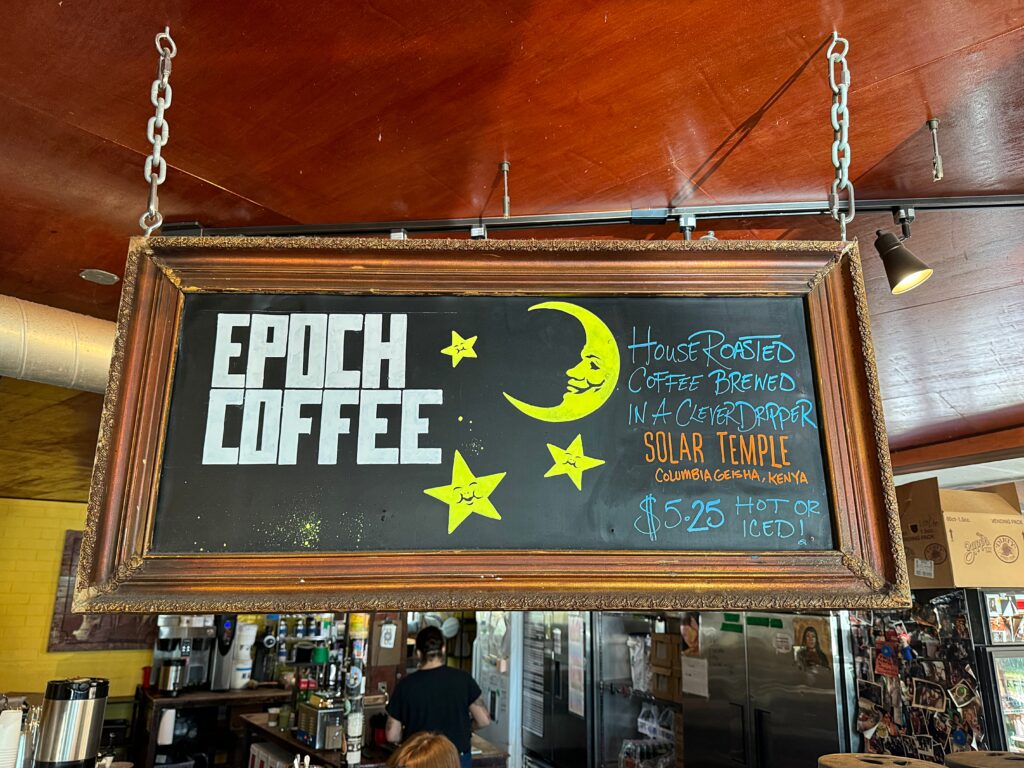
We’ve also prioritized anti-harassment training through SAFE, a local organization that does outstanding work in our community. My hope is that anything that we’re doing at Epoch raises the bar on what people can expect at their jobs going forward.
We asked you for advice on building a safe space, but is there a piece of advice or a guiding principle you follow when the answers don’t feel as clear? How do you calibrate your internal compass?
Hensley: The sentence I always return to when I’m trying to make a decision is, “We take care of each other.” We take care of our staff, we take care of our community, and we take care of the world at large. And if there’s a decision I’m making that’s not in alignment with that sentence, then it’s not something we need to do.
It’s like the Maya Angelou quote: “If you know better, you do better.” Be open to learning new things, being wrong, and adjusting. If I hear something isn’t working for my staff, it’s essential to listen to what they have to say. Everyone at Epoch has a background in barista work—we didn’t come to this as business people looking to make a bunch of money; we came at it as baristas looking to open a shop that we would want to hang out and work at.
If you look closely, there are lots of opportunities for growth. Adjust to situations as they arise, and don’t dig in too hard on one way of thinking.
This interview has been lightly edited for clarity.

